Experts seek to optimise treatment of metastatic HER2 positive breast cancer in Vietnam
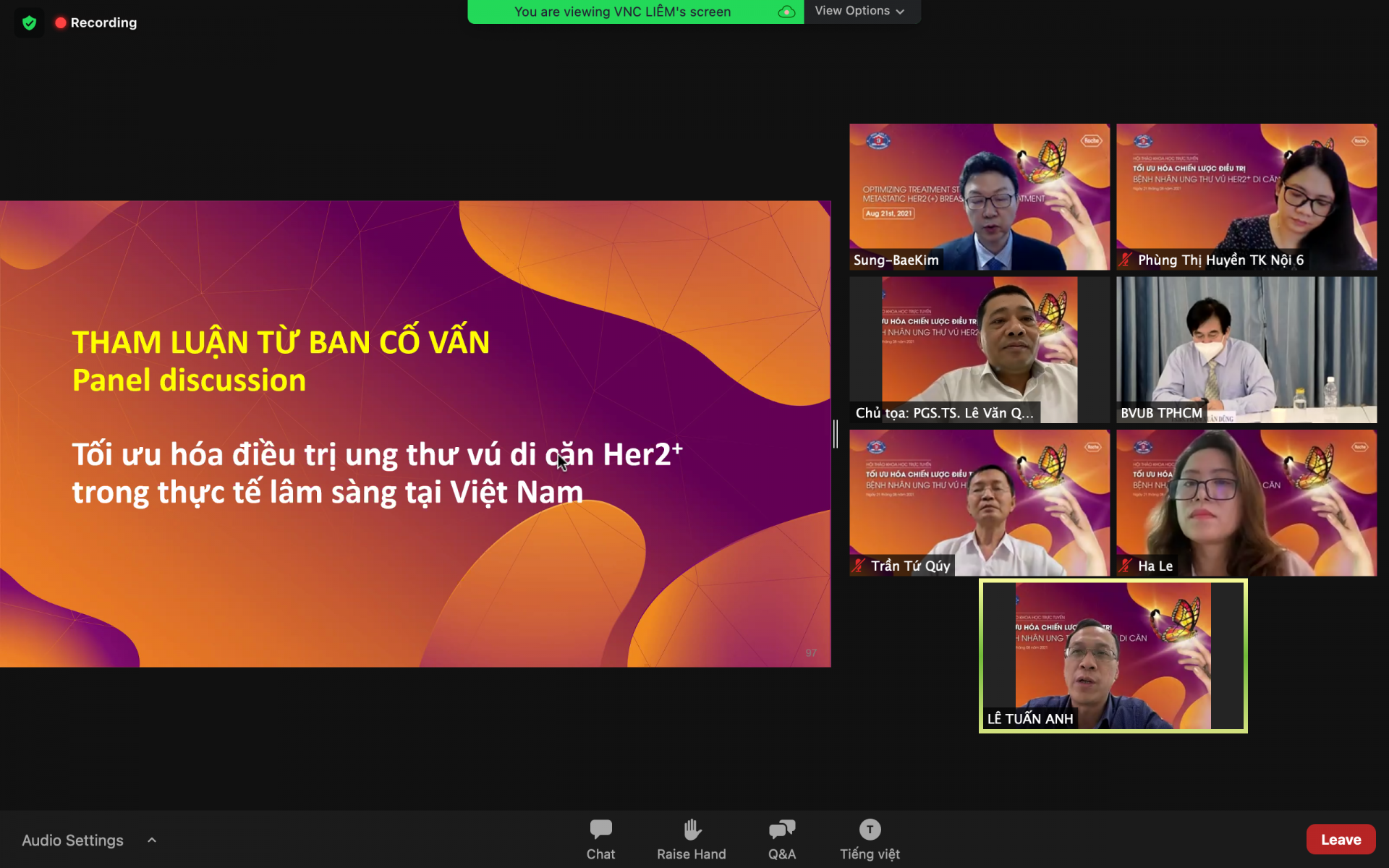 |
| Experts at the scientific conference on August 21 to discuss about optimisation of treatment strategy for patients with metastatic human epidermal growth factor receptor 2 (HER2) positive breast cancer in Vietnam |
In the conference, leading Vietnamese and international oncology experts have provided an update on the current state of affairs as well as improvements in the treatment of HER2 positive (HER2+) breast cancer in Vietnam.
Prof. Sung Bae Kim, Director of Breast Cancer Center, Asan Medical Center, University of Ulsan, College of Medicine said, “TDM-1 is the first antibody-drug conjugate (ADC) with a unique mechanism that helps to improve the treatment effect and significantly reduce side effects. Clinical studies have shown that this conjugate is highly effective and continues to improve the patient’s survivability and quality of life with acceptable safety. In addition, it has proved to be effective in patients with brain metastasis.”
Based on Professor Kim's clinical experience, the efficacy and tolerability of TDM-1 in South Korean patients also strengthen other results from the pivotal clinical studies. Along with the dual-drug therapy, the use of TDM-1 in the treatment of metastatic breast cancer with overexpression of HER2 has gone a step further towards the goal of transforming metastatic breast cancer into a chronic disease.
According to Dr. Hoang Thi Mai Hien, Ho Chi Minh City Oncology Hospital, patients with metastatic breast cancer must often go through many steps of treatment. In Vietnam, there is a full range of anti-HER2 drugs for the first-line treatment of HER2+ metastatic breast cancer. TDM-1 is an option for second-line treatment. TDM-1 significantly extends the life of patients with cancer progression-free. The fact that TDM-1 is officially approved and recommended for the later steps of treatment will help Vietnamese oncologists have more options to save the patients with HER2+ metastatic breast cancer.
The members of the advisory board of the conference, including leading medical oncology specialists across the country, also agreed that doctors should determine from the very beginning the optimal treatment strategy for HER2+ metastatic breast cancer, which is first-line treatment with dual anti-HER2+ medicine therapy and second-line treatment with TDM-1 so that patients can get the highest survivability possible.
Girish Mulye, general director of Roche Pharma Vietnam, emphasised, “As a pioneer in the pharmaceuticals and diagnostic equipment field globally, Roche always aspires to change the lives of patients for the better. Therefore, we constantly focus on scientific research to bring breakthrough treatment solutions. The successful research and development of TDM-1 to put in the treatment regimen for metastatic breast cancer with HER2+ is a significant contribution to women's health worldwide as well as in Vietnam.”
“This is also part of the company's long-term commitment to public health in improving quality of life, reducing complications and mortality caused by cancer in general and breast cancer in particular,” he added.
In Vietnam, breast cancer is the most common type of cancer among women with over 21,000 new cases recorded each year. A global cancer report in 2020 of Globocan showed that in Vietnam, breast cancer is accounting for 25.8 per cent of the new cases in women every year. Overall, it also ranks third among the most common types of cancer across both genders, after liver cancer and lung cancer.
Regarding the diagnosis and treatment work, statistics of the health sector in Vietnam showed that around 5-10 years ago, the rate of cancer patients detected at the late stages was over 70 per cent. At the moment, that rate has decreased due to increasing awareness in the community. However, late treatment is still quite challenging because the metastasis has reached multiple organs, leading to a grim prognosis and making it difficult to increase the success rate of treatment for patients
According to statistics, more than 20 per cent of breast cancer patients in Vietnam have overexpression of HER2. To improve and extend the patients' life, the first-line treatment for metastatic breast cancer in Vietnam has kept up with the advanced regimens in the world. The treatment, based on dual anti-HER2 medicine therapy has significantly improved the survivability of patients.
However, finding the direction for the next treatment after the first-line therapy fails is still challenging in Vietnam because we do not have standard treatment drugs that are approved and recommended by international treatment guidelines. In addition, there are differences in the patient's physical condition, expectations and feelings compared to the first-line treatment.
What the stars mean:
★ Poor ★ ★ Promising ★★★ Good ★★★★ Very good ★★★★★ Exceptional
 Tag:
Tag:
Themes: Healthcare Platform
- Hanoi intensifies airport monitoring amid Nipah disease risks
- Cosmetics rules set for overhaul under draft decree
- Policy obstacles being addressed in drug licensing and renewal
- Sanofi, Long Chau Pharmacy relaunch medicine blister pack collection initiative
- Takeda Vietnam awarded for ongoing support of Vietnam’s sustainability efforts
Related Contents
Latest News
More News
- Hanoi intensifies airport monitoring amid Nipah disease risks (January 29, 2026 | 15:21)
- 14th Party Central Committee unanimously elects To Lam as General Secretary (January 23, 2026 | 16:22)
- List of members of 14th Party Central Committee announced (January 23, 2026 | 09:12)
- Highlights of fourth working day of 14th National Party Congress (January 23, 2026 | 09:06)
- Press provides timely, accurate coverage of 14th National Party Congress (January 22, 2026 | 09:49)
- Press release on second working day of 14th National Party Congress (January 22, 2026 | 09:19)
- Minister sets out key directions to promote intrinsic strength of Vietnamese culture (January 22, 2026 | 09:16)
- 14th National Party Congress: Renewed momentum for OVs to contribute to homeland (January 21, 2026 | 09:49)
- Party Congress building momentum for a new era of national growth (January 20, 2026 | 15:00)
- 14th National Party Congress’s opening: Great aspirations, steady steps (January 20, 2026 | 09:50)

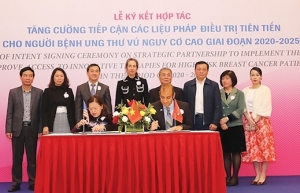
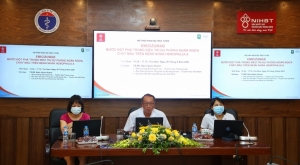
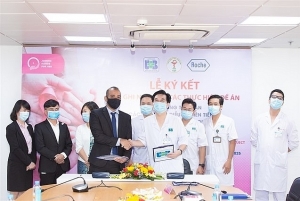
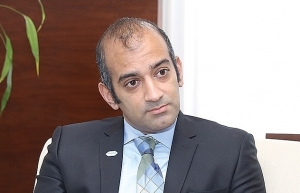

























 Mobile Version
Mobile Version